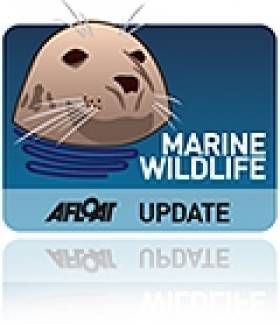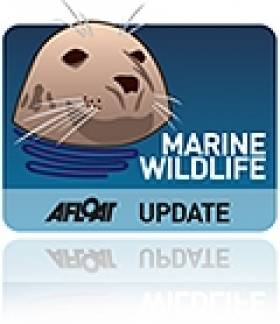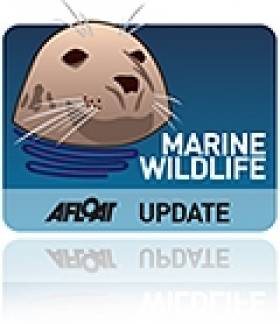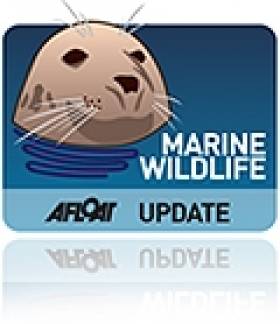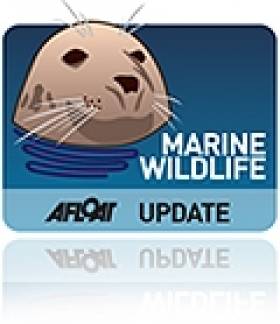Displaying items by tag: grey Seals
Are 'Killer Seals' Feasting In British Waters?
#MarineWildlife - Are 'killer seals' feasting on porpoises off the British coast? Mail Online seems to think so – and presents some shocking evidence.
The video above appears to show a grey seal tearing at the flesh of a porpoise it had killed off Pembrokeshire recently.
While it's not rare to see such seals attack other marine mammals in continental Europe, this is the first time they've been spotted anywhere near Britain or Ireland.
Dafydd Rees, who works with a wildlife cruise company and shot the footage, said he'd "never seen anything like it before" on that stretch of coast.
Britain is already home to nearly half the world's entire population of grey seals. But those resident locally have never before been known to eat anything more than fish.
Experts fear, however, they they may be developing a taste for porpoises caught in fishing nets – and graduating from weakened specimens to healthy young porpoises for their energy-rich layer of fat.
And it's prompted some fears that people swimming near seals might be next on the menu!
Mail Online has more on the story HERE.
Porpoises' Biggest Threat? It's Grey Seals, Say European Researchers
#MarineWildlife - Marine scientists think they've found the answer to the mystery of dead porpoises washed up on French and Belgian beaches with dog-like bite marks.
As the Irish Examiner reports, their research points the finger at grey seals - forced into competition with the cetaceans over the fish that make up their diets.
Indeed, it may be overfishing by humans that's prompted the seals to turn on their fellow marine mammals as commercial fishing stocks dwindle in the North Sea.
The Irish Examiner has more on the story HERE.
Fishermen Condemn Illegal Killing of Baby Seals
#MARINE WILDLIFE - Fishermen have condemned the appalling killing of two baby seals whose heads were nailed to signs outside a wildlife sanctuary in Dingle last week.
As previously reported on Afloat.ie, staff at the Dingle Wildlife and Seal Sanctuary were subject to the "sickening" sight on Thursday morning, which was alleged to be connected to a campaign among local fishermen urging for a cull of seal numbers in the area.
However, as the Irish Independent reports, fishermen have spoken out to decry the grisly incident.
Michael Hennessy, skipper of the fishing vessel Realt na Mara, said: "This kind of thing is not going to do any good for any campaign, and fishermen would not lower themselves to do something like that."
Michael Flannery of the Irish Fish Producers' Organisation (IFPO) added: "Fishermen are calling for a seal cull but we want this carried out in an organised, approved and humane way."
According to the Irish Examiner, Sea Shepherd Ireland has added a €2,000 reward to the €5,000 offered by fellow animal rights group ARAN for anyone with information leading to the arrest or conviction of those responsible for the illegal seal killing.
Meanwhile, two grey seals pups currently being cared for at the Dingle sanctuary may be released earlier than expected due to fears for their security.
Fears Over Illegal Cull as Seals, Dolphin Die on Waterford Beach
#MARINE WILDLIFE - Fears are growing of an illegal cull of marine wildlife after a seal and dolphin were discovered dead on a Waterford beach - just hours after two seals were found dying from bullet wounds in the same location.
TheJournal.ie reports that the wounds on the two animals found on Tramore Beach on Thursday are also believed to be from gunshot.
Two grey seals were euthanised the previous evening after they were discovered gravely injured with "horrific" wounds on the same beach.
A spokesperson for the Irish Seal Sanctuacy (ISS) has called for a post-mortem of the animals to determine the exact cause of death - but pointed the finger at an illegal cull allegedly carried out by local fishermen.
"We’re not against a properly regulated cull," said the ISS's Johnny Woodlock, "but it’s the guy who goes out with a shotgun and takes potshots, that’s what we’re against.”
TheJournal.ie has more on the story HERE, including an image that many may find distressing.
Protected Seals in Northern Ireland Were Decapitated
A total of 16 were found, mainly grey pups and juveniles - which are both protected under European legislation - were recovered from Strangford Lough and Dundrum Bay.
The Environment Agency said circumstantial evidence indicated interaction with some form of net in at least two cases, but there was no proof the seal deaths resulted from legitimate, licensed fishing activity.
"Neither is there evidence linking these deaths to the marine current turbine being trialled in the Strangford Narrows, as this would not inflict the sharp cuts seen," the agency said.
Declan Looney, senior wildlife inspector from the Northern Ireland Environment Agency, said: "Members of the public can assist by reporting all dead seal strandings to NIEA on 028 4461 5520." More from the Belfast Telegraph HERE.


























